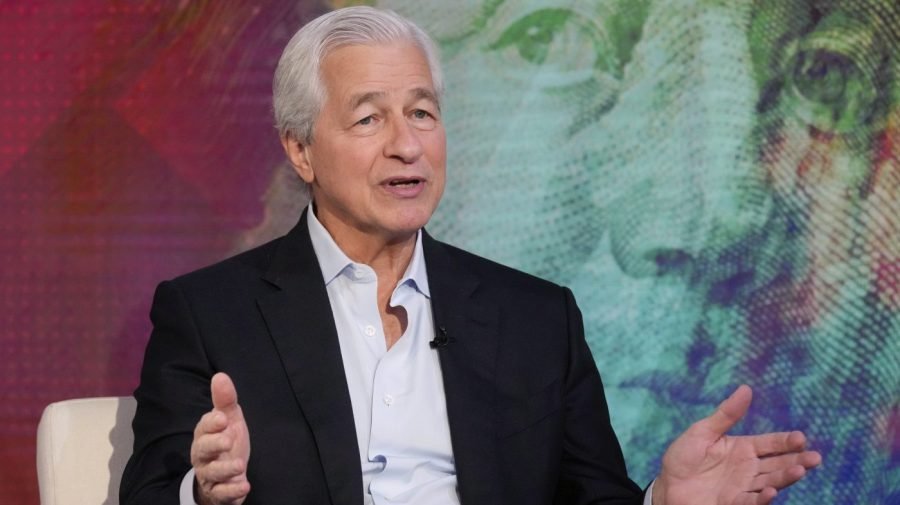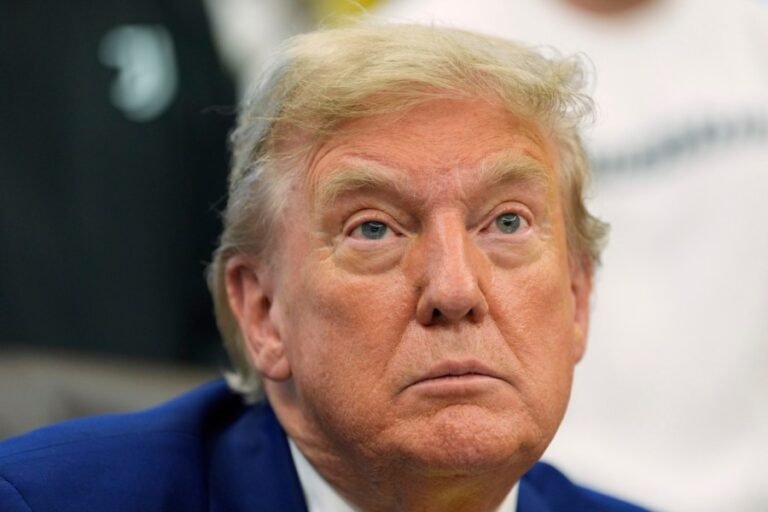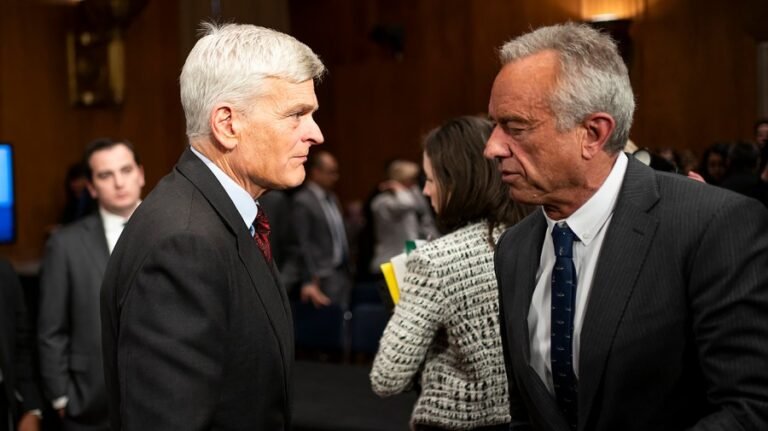
JPMorgan Chase CEO Jamie Dimon said he sees a “tough time” ahead for the bond market as Republicans work to pass a tax cut and domestic agenda bill that could add trillions to the national debt.
The Republican-controlled House passed its version of the bill last month, which would extend the last round of GOP tax cuts passed in 2017 and kick millions out of public healthcare and food assistance programs.
Final cost estimates for the House version haven’t been released by the Congressional Budget Office (CBO) yet, but it would add in the ballpark of $2.3 trillion to the national debt over nine years, according to a line item tally of major provisions in the legislation.
Asked about national debt levels, Dimon said Monday that he thought they were a big deal.
“It’s a big deal. It is a real problem,” he said on the “Mornings with Maria” talk show on the Fox Business Network on Monday. “The bond markets are going to have a tough time.”
Bond markets have gotten jittery in recent months in response both to President Trump’s trade war and to Republicans’ domestic agenda bill.
The yield on the 30-year Treasury broke 5.1 percent last week and was trading Monday morning at 4.97 percent. Since earlier this year, bonds have been trading in the highest range since about 2007.
Bond markets are also recoiling at a provision in the bill that could hikes taxes investors from “discriminatory foreign countries” that could scare off international capital, along with Trump’s tariffs.
These taxes are outlined in Section 899 of the bill and could amp taxes on U.S. income by about 5 percent per year, up to 20 percent.
“Any measures that reduce the attractiveness of U.S. assets to foreign investors will need to be reflected in a weaker currency and/or higher yields, which will be politically and economically costly,” Francis Yared and others wrote in a Friday note for Deutsche Bank.
The GOP bill could get substantial revisions in the Senate where it faces conflicting sets of pressures from both moderates, who are concerned about shrinking public programs, and from deficit hawks, who are demanding steeper cuts.
GOP Sens. Lisa Murkowski (Alaska) and Susan Collins (Maine) are among the main Republican moderates while Sens. Rand Paul (R-Ky.) and Ron Johnson (R-Wis.) are two prominent budget hawks. Sen. Josh Hawley (R-Mo.), who has broken party ranks to defend some social safety net programs, has also pushed back against Medicaid cuts included in the bill.
Sen. Thom Tillis (R-N.C.), who faces a tight midterm race in 2026, has voiced opposition to the repeal of environmental technology tax breaks in the bill that were passed initially in Democrats’ 2022 large-scale climate package.


